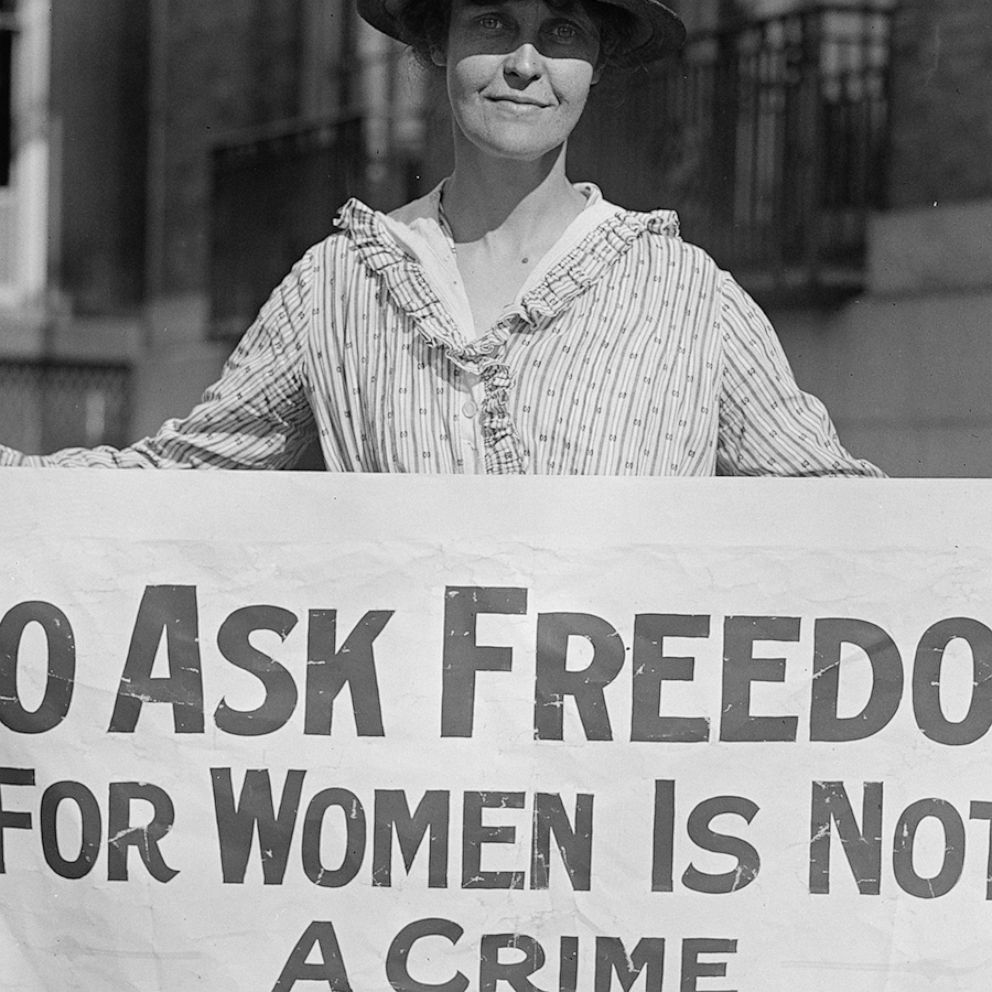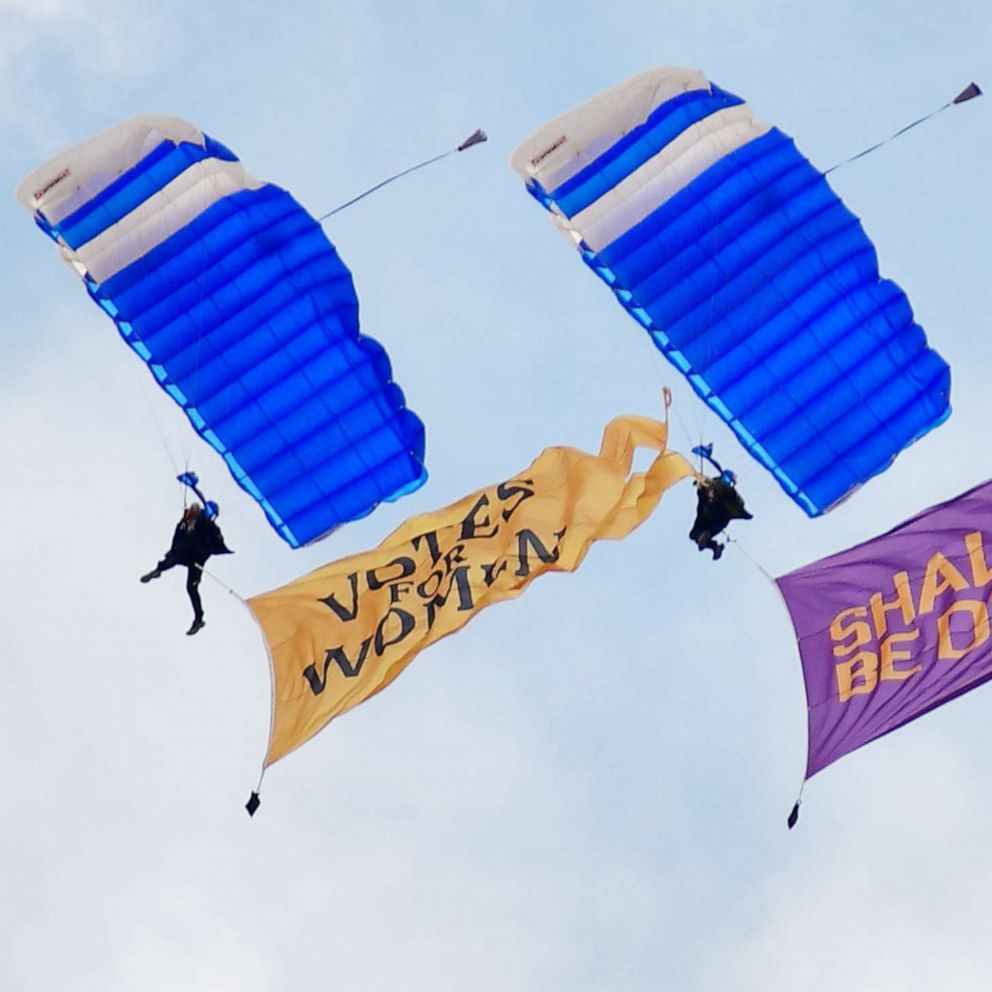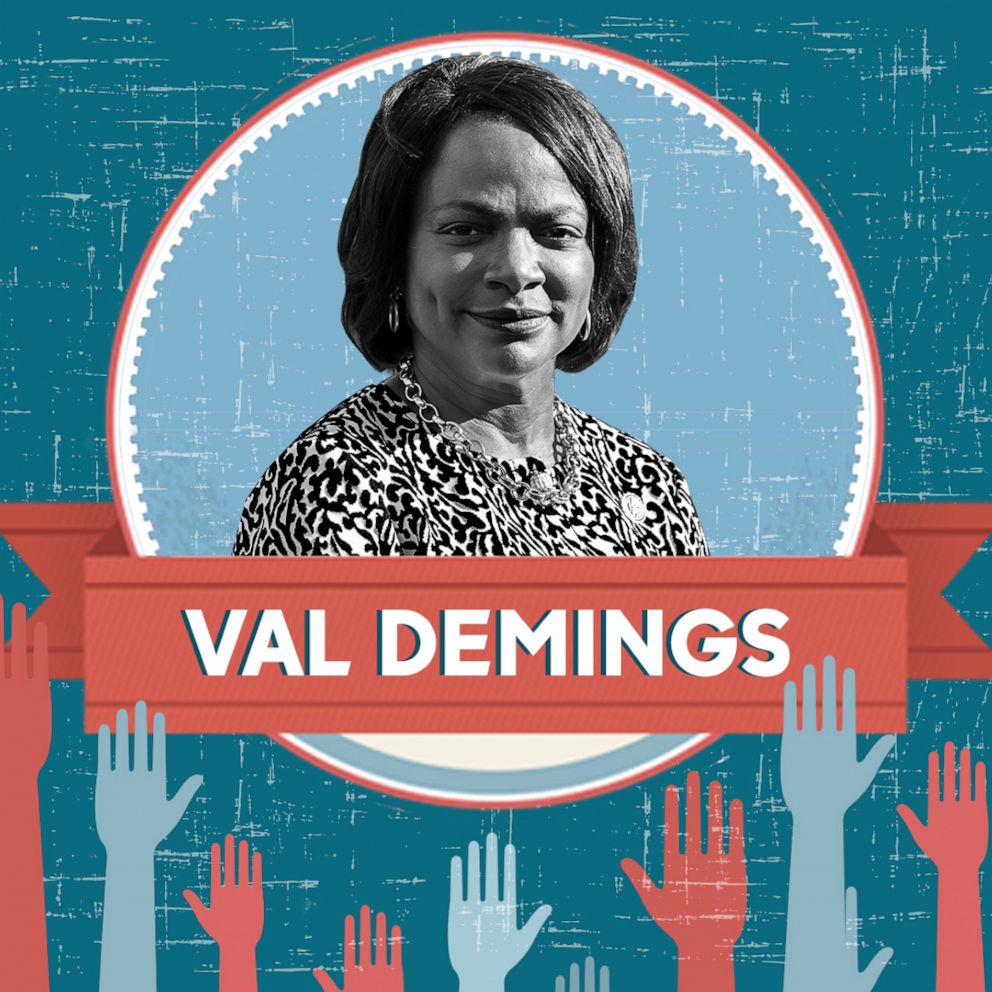Kamala Harris shines spotlight on trailblazing Black women in her 2020 DNC speech
What to know about the six women Harris named in her speech.
When Sen. Kamala Harris, D-Calif., accepted the Democratic Party's nomination for vice president Wednesday night, she did so by recognizing the trailblazing women who came before her.
"That I am here tonight is a testament to the dedication of generations before me," said Harris, the first Black woman and first person of Indian descent to be nominated for national office by a major political party. "Women and men who believed so fiercely in the promise of equality, liberty and justice for all."
"This week marks the 100th anniversary of the passage of the 19th Amendment. And we celebrate the women who fought for that right," she said. "Yet so many of the Black women who helped secure that victory were still prohibited from voting, long after its ratification. But they were undeterred."
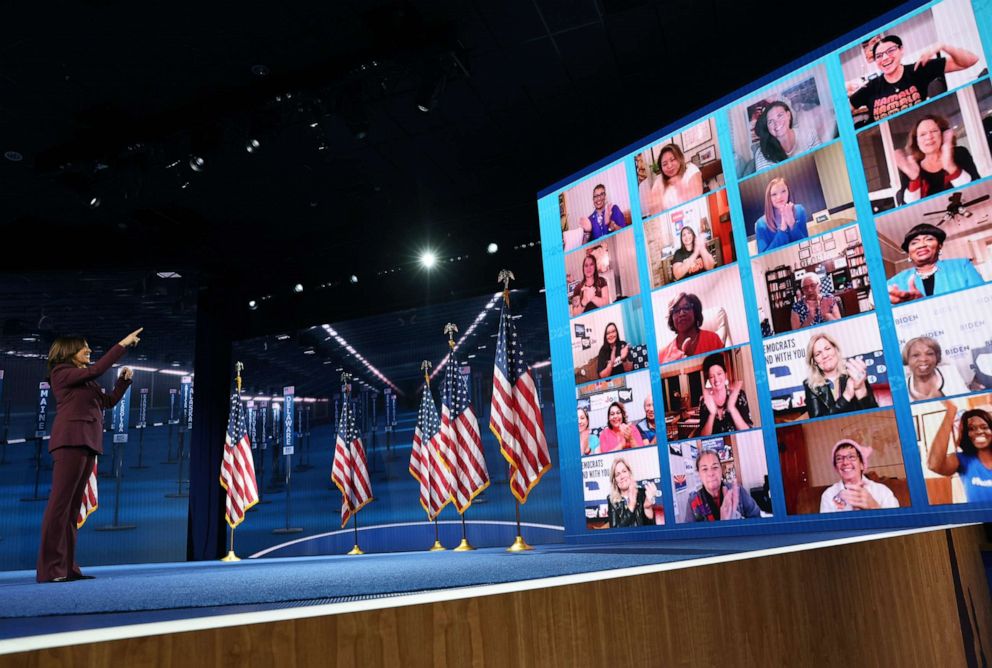
"Without fanfare or recognition, they organized, testified, rallied, marched and fought -- not just for their vote, but for a seat at the table," said Harris. "These women and the generations that followed worked to make democracy and opportunity real in the lives of all of us who followed."
Harris went on to name specific women whose shoulders she said she stands on.
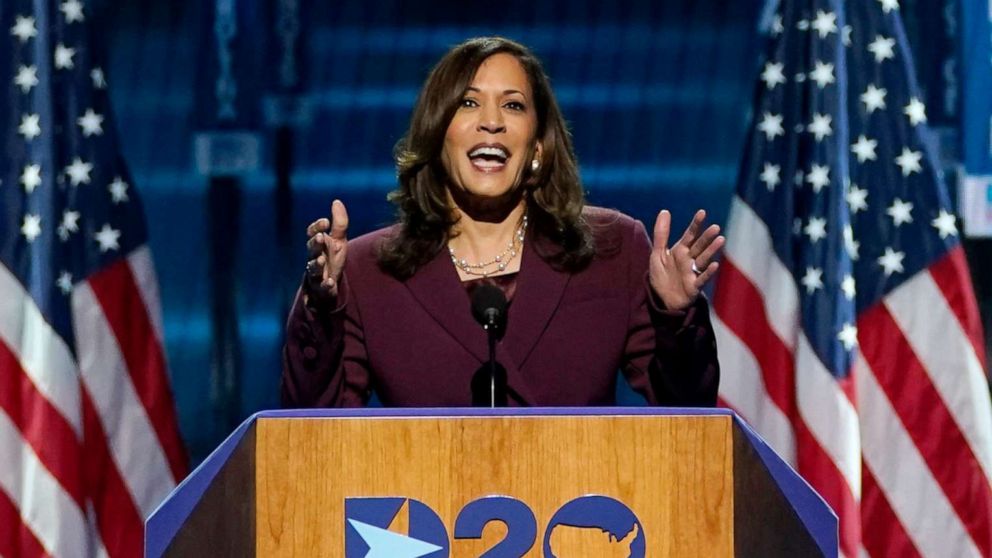
"Women like Mary Church Terrell and Mary McCleod Bethune. Fannie Lou Hamer and Diane Nash. Constance Baker Motley and Shirley Chisholm," she said. "We’re not often taught their stories. But as Americans, we all stand on their shoulders."
Harris herself has been a trailblazer for nearly her entire career.
She was the first Black woman elected district attorney of San Francisco and the first woman, first Black woman and first Asian American to serve as California's attorney general.
It did not go unnoticed by people watching Harris's speech that she, the first Black female vice presidential nominee in history, used her platform on the national stage to highlight Black female activists who are too often left out of history.
Here are facts to know about the six women Harris highlighted in her speech.
Mary Church Terrell
Terrell was the daughter of one of the South's first African American millionaires, who went on to earn a bachelor's and master's degree from Oberlin College and become a teacher.
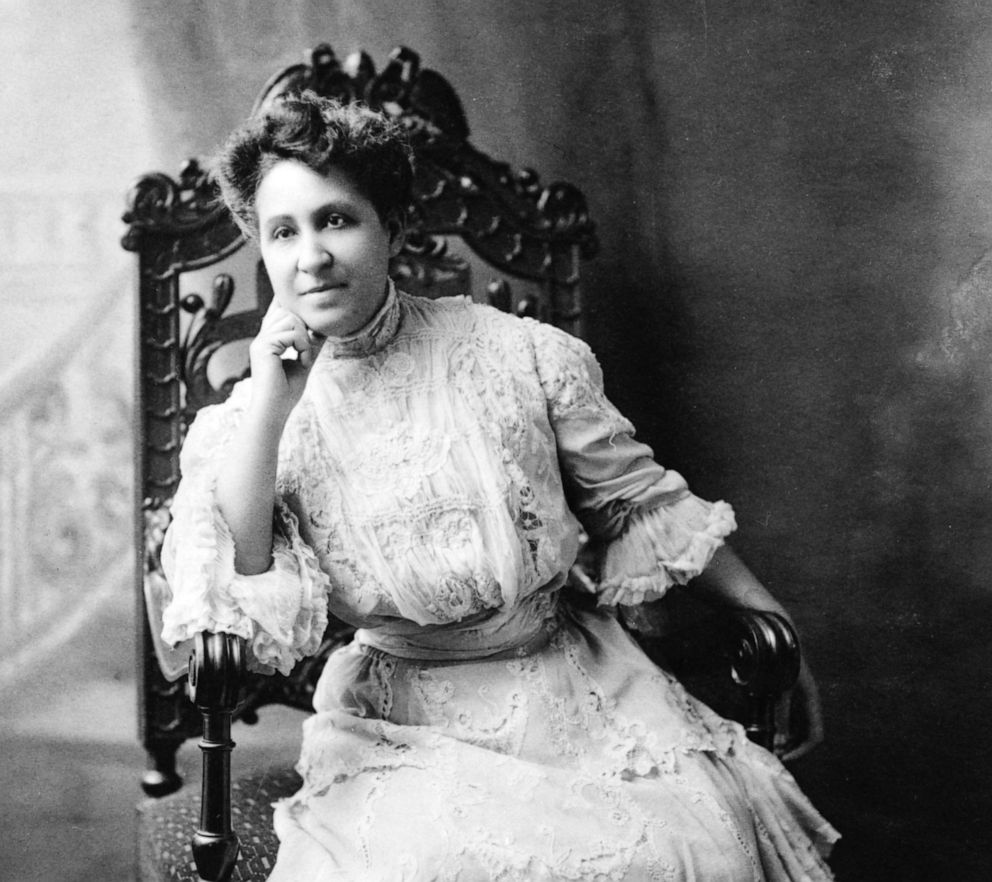
She was active in the anti-lynching movement and went on to focus on civil rights and advancement for African Americans. Her own words, "Lifting as we climb," became the motto of the National Association of Colored Women, and she served as the group's first president.
Mary McCleod Bethune
Dr. Bethune was a South Carolina-born child of former slaves who went on to become a teacher and founder of Bethune-Cookman University in Daytona Beach, Florida.
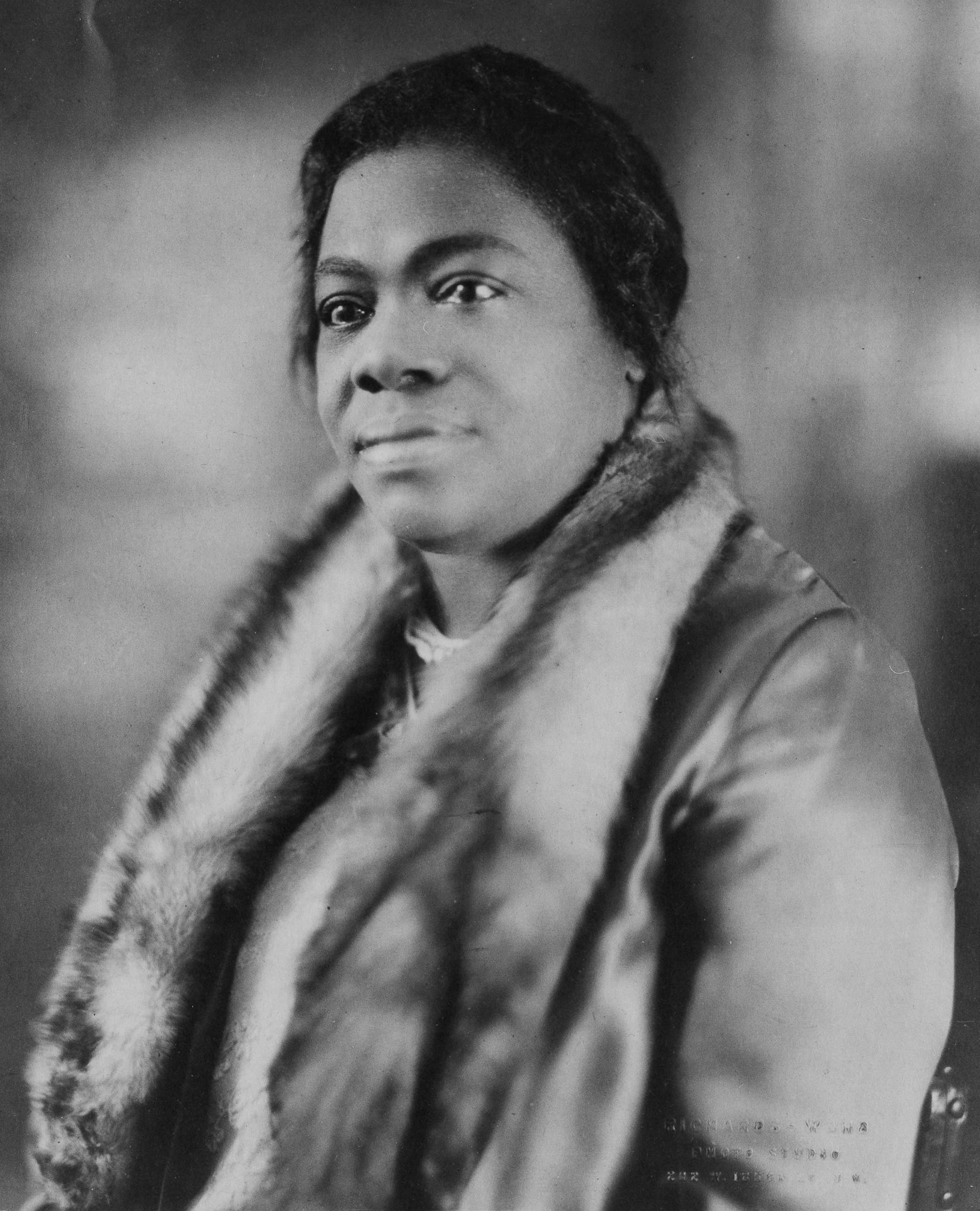
She became a prominent voice on civil rights, women's rights and children's rights, serving as president of the State Federation of Colored Women's Clubs, president of the National Association of Colored Women's Clubs, and founder of the National Council of Negro Women, according to Bethune-Cookman University.
Fannie Lou Hamer
Hamer is described by the National Women's History Museum as one of the "most important, passionate, and powerful voices of the civil and voting rights movements and a leader in the efforts for greater economic opportunities for African Americans."
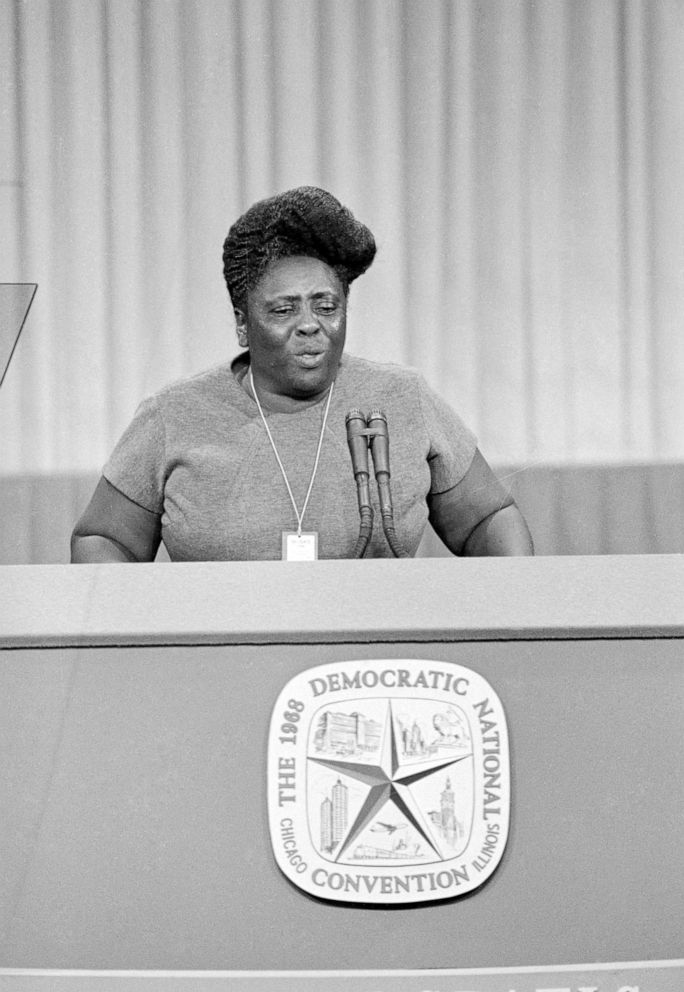
Born the child of sharecroppers, Hamer became an organizer with the Student Non-Violent Coordinating Committee and was left with lifelong injuries when she was beaten in jail after being arrested for sitting in a "whites only" bus station restaurant in Charleston, South Carolina, according to the museum.
She later helped organize a voter registration effort in the South called Freedom Summer and helped to found the National Women’s Political Caucus. She also launched the Freedom Farm Cooperative that bought land for Black people in hopes of giving them economic freedom and, in turn, greater racial equality, according to the museum.
Diane Nash
A civil rights pioneer, Nash attended Howard University, the same historically Black college and university from which Harris graduated.
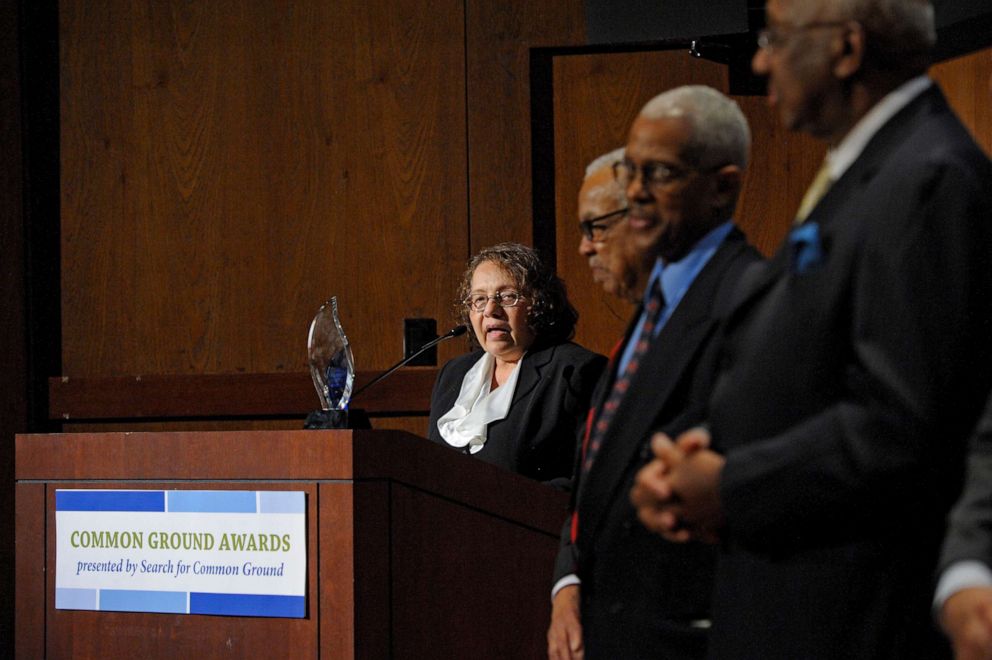
She went onto work alongside Martin Luther King, Jr. in the civil rights movement with the Student Nonviolent Coordinating Committee and the Southern Christian Leadership Conference, according to the Martin Luther King, Jr. Research and Education Institute at Stanford University.
Nash, who is credited with playing a pivotal role in the Freedom Rides of 1961, later became a teacher and taught in Chicago public schools.
Constance Baker Motley
As a lawyer with the NAACP Legal Defense and Educational Fund, Motley helped integrate the Universities of Georgia, Alabama, and Mississippi and others.
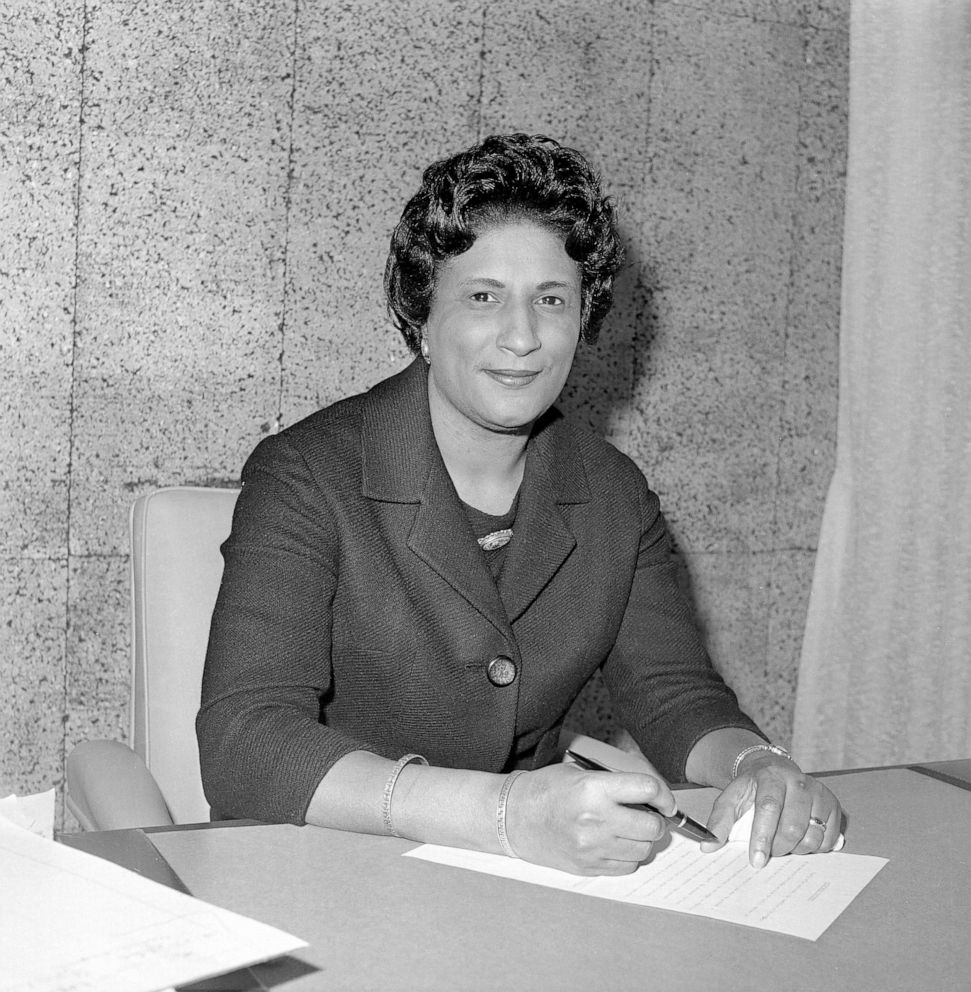
She was the first African American woman to argue a case before the Supreme Court, and the first to serve as a federal judge. In her later career in New York politics, she became the first African American woman in the state Senate, and the first woman elected Manhattan Borough president, according to her court biography.
Shirley Chisholm
In 1968, Chisholm became the first Black woman in Congress, where she went on to serve seven terms in the U.S. House of Representatives.
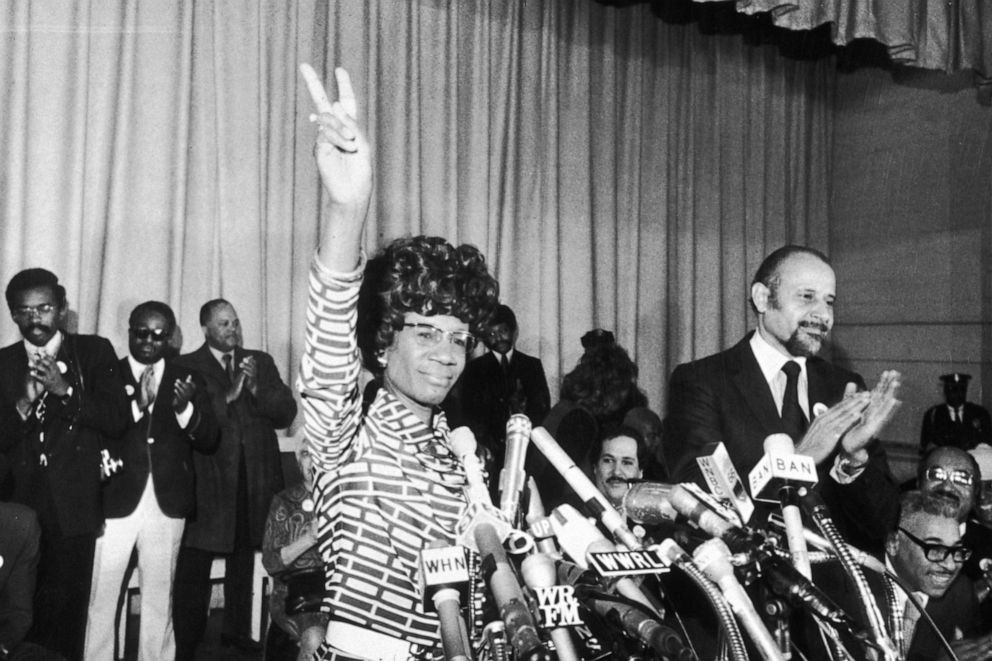
Four years after entering Congress, in 1972, Chisholm became the first woman and first Black person to seek the nomination for president of the United States from one of the two major political parties, according to the National Women's History Museum.
